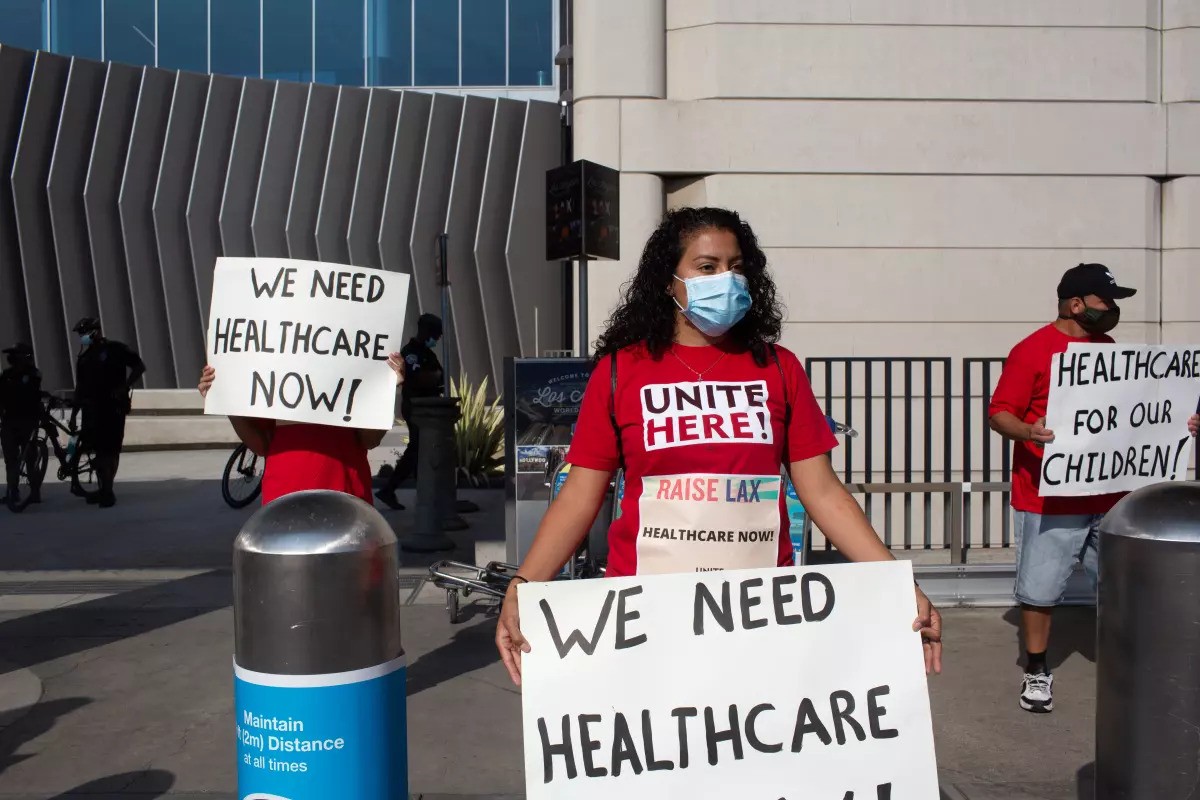Here is our reality: Despite being the world’s largest spender on healthcare, the United States has faced higher Covid-19 death rates and worse Covid-19 outcomes than any other large, high-income nation. The pandemic has revealed the deficiencies of the American healthcare system, emphasizing the imperative for comprehensive reform that prioritizes equitable access to quality medical services. Universal healthcare is a model that provides all residents of a country with access to medical treatment through a single government-run or government-funded insurance program. Sounds straightforward, right? So why hasn’t this system been put in place? For decades, politicians and lobbyists have perpetuated the myth that universal healthcare is synonymous with socialism, stoking apprehension and resistance among the American public. However, the truth is that universal healthcare is not a radical idea; it is a proven approach to providing access to quality healthcare globally.
Our healthcare system is inherently fragmented, enabling corruption and hindering reform. Multiple, often competing entities, such as hospitals, clinics, insurance companies, and pharmaceutical corporations, each have unique agendas and profit motives, resulting in a lack of cohesion across the healthcare industry. Regulatory oversight is often decentralized and splintered, allowing these entities to wield unchecked influence over policy decisions and exploit the system to advance their interests.
This has led to widespread fluctuation in prices, with insurance companies negotiating different rates with hospitals based on individual insurance plans. As a result, patients covered by different providers may face disparate costs for the same healthcare services. And the problem is only getting worse: Over the last decade, the average premium for family insurance coverage has surged by more than 45 percent. Financial considerations often take precedence over the well-being of patients, perpetuating a system in which profit is king.
Deeply entrenched healthcare issues exacerbated the Covid-19 pandemic, leaving millions of Americans without access to essential care. Because employer-sponsored insurance predominates in the United States, widespread job losses during the pandemic directly translated to lapses in healthcare coverage: Approximately 14.6 million Americans lost employer-sponsored insurance in June 2020. Health insurance gaps subsequently contributed to about one-third of Covid-19 deaths and 40 percent of Covid-19 infections.
The pandemic also disproportionately affected minority communities, magnifying existing health and socioeconomic disparities. More than one in three non-elderly, Native American adults were at a heightened risk of serious illness if infected with the virus, surpassing all other racial and ethnic groups. Additionally, individuals with household incomes below $15,000 were more than twice as likely to be at risk of serious illness if infected compared to those with annual incomes exceeding $50,000.
A theoretical universal healthcare system is predicted to have been able to save more than 330,000 American lives during the pandemic and $105 billion in pandemic-related healthcare costs. Had universal healthcare been in place, continuous health insurance coverage would have been guaranteed for all individuals. Wider access to primary care would have facilitated faster treatment and higher vaccination rates, reducing Covid-19-related hospitalizations. With earlier diagnoses and fewer hospitalizations, the strain on US hospitals would have been lessened, enhancing the country’s ability to manage the pandemic effectively.
The benefits of universal healthcare during the pandemic are not just theoretical, though: Countries with universal healthcare systems demonstrably fared far better. The New Zealand government’s proactive measures—including lockdowns and travel restrictions—coupled with its centralized healthcare system ensured testing and treatment for all individuals regardless of socioeconomic status. By the end of 2020, New Zealand, with a population of 5.1 million, had reported just 2,000 cases and 25 deaths. Similarly, South Korea’s universal healthcare system played a crucial role in containing the spread of the virus, enabling the implementation of early detection, testing, and treatment policies. Unsurprisingly, then, a full year after the first Covid-19 case was reported, South Korea had reported fewer than 80,000 cases and 1,500 deaths.
However, recognizing the virtues of a universal healthcare system does not elucidate how to implement one effectively. South Korea rapidly implemented universal healthcare, achieving coverage for the entire nation in just 12 years. Yet, numerous challenges have since arisen, including financial instability exacerbated by economic crises. South Korea’s plight exemplifies that, to effectively provide universal healthcare, the US government must regulate the supply side of the industry, like by intervening in ballooning pharmaceutical prices.
Moreover, addressing medical disparities involves more than simply providing access to healthcare. In New Zealand, disparities persist in the healthcare system, evidenced by the variability in treatment rates for marginalized communities. The National Health Service has provided universal coverage to England since 1948, yet preventable hospitalizations and amenable mortalities continue to disproportionately affect disadvantaged populations—despite efforts in the early 2000s and 2010s to narrow gaps in access to healthcare. Thus, while universal healthcare lays the groundwork, addressing broader socioeconomic determinants remains imperative for achieving true healthcare equity.
Still, implementing a universal healthcare system is a promising first step. The fragmented and inequitable US healthcare system hinders progress toward meaningful reform and leaves many individuals underserved and medically marginalized. We cannot weather another pandemic without robust healthcare infrastructure. By instating a universal healthcare system, the United States can better prepare for future health crises and safeguard the well-being of its population. It is time for politicians to put aside the interests of corporate donors and enact policies that prioritize equitable access to quality healthcare for all Americans.
